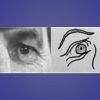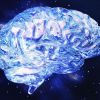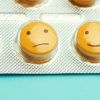-
 +11 +1
+11 +1People implicitly associate masked faces with psychological distance, study finds
Published in Social Psychological and Personality Science, researchers found that people who wear masks tend to be viewed as more socially distant. The findings provide evidence of an implicit association between masked human faces and concepts related to psychological distance.
-
 +13 +1
+13 +1Examining how first impressions affect later romantic outcomes
A new University of California, Davis, study analyzing romantic first impressions shows that compatibility and popularity among the dating pool are influential in shaping who people pursue as potential romantic partners.
-
 +18 +1
+18 +1Meta-analysis suggests frequent pornography use isn't the same as problematic use
Is watching too much pornography a gateway to problematic porn usage? A study published in the Journal of Sex Research suggests that though this relationship does exist, there are a myriad of other factors that play a role in whether or not porn consumption becomes an issue.
-
 +20 +1
+20 +1Autistic people outperform neurotypicals in a cartoon version of an emotion recognition task
People who on the autism spectrum are frequently thought of as lacking the ability to accurately recognize the emotions of others, but is that true? A study published in Autism Research suggests that when certain differences are accounted for, individuals with autism can actually outperform neurotypicals.
-
 +14 +1
+14 +1Insecure attachment linked to a psychological phenomenon known as negative attribution bias
People who are insecure about their attachments to others tend to exhibit greater negative attribution bias, according to new research published in the Personality and Social Psychology Bulletin
-
 +11 +1
+11 +1Anger Exacerbates Political Bias
There have been many studies and popular articles about the effect that fear-mongering has on people’s political attitudes since Donald Trump arrived on the scene. Fearful messages designed to make individuals feel that their existence or worldview is being threatened are powerful tools for politicians, and have been for a very long time.
-
 +15 +1
+15 +1It’s ****ing big and it’s ****ing clever: why swearing makes you fitter, happier and more persuasive
A new scientific paper has confirmed the power of curse words – and not only to shock.
-
 +19 +1
+19 +1Pilots tend to have less emotional intelligence than the average person, new research suggests
Being emotionally intelligent may be important for a teacher, salesman, or therapist, but what about for a pilot? A study published in Nature’s Scientific Reports suggests that pilots are less likely to be emotionally intelligent compared to the average person.
-
 +17 +1
+17 +1Why Sugar Might Be More Addictive Than Cocaine
-
 +8 +1
+8 +1Having more time to oneself is the top reported benefit of being single, study finds
New research published in the journal Evolutionary Psychological Science suggests that people view the single life as an opportunity to focus on self-development. Having more time for themselves, being able to focus on their goals, and having no one else dictate their actions were among the most highly rated benefits of being single.
-
 +21 +1
+21 +1Posing smiles can brighten our mood
Can posing a smile brighten our mood? According to an international collaboration of researchers, the answer is yes.
-
 +3 +1
+3 +1People with psychopathic tendencies find frightening situations enjoyable rather than threatening
Does psychopathy make people fearless? A study published in Cognition and Emotion suggests that people who have psychopathic traits are more likely to take risks
-
 +17 +1
+17 +1Disgust ratings of a romantic partner's body odor differ depending on attachment style
People say love is blind, but is love also anosmic? A new study published in the Journal of Applied Social Psychology suggests that people may actually smell their partner’s body odor differently based on their attachment style. ...
-
 +15 +1
+15 +1People who suffer sleep deprivation become less generous, according to new research
What determines how generous a person you are? Could it be how much money you have? How kind you are? Or maybe it comes down to your values. These all seem reasonable assumptions, but a new study from Berkeley University suggests something that feels as trivial as how well you’ve slept lately can also affect how willing you are to help other people on any given day. It found sleep deprivation leads to a reduction in generosity.
-
 +18 +1
+18 +1Science Confirms the Obvious: Ten Studies That Make You Say "Duh"
Sometimes it takes long, hard study to pin down what we thought we knew all along—and to reveal surprising findings beneath the surface of common sense. People drive poorly when talking on their cellphone? The elderly prefer happy memories over sad ones? Shocking!
-
 +11 +1
+11 +1The focus on misinformation leads to a profound misunderstanding of why people believe and act on bad information
In the aftermath of Brexit and Trump’s 2016 presidential victory, the commentariat scrambled for explanations of these surprising and—to many—distressing events. One story that quickly won widespread acceptance appealed to misinformation.
-
 +13 +1
+13 +1What happens to the brain on prescription steroids?
According to a new study, long-term use of prescription steroids lowers the volume of white matter in the brain, potentially impacting memory recall and other functions.
-
 +17 +1
+17 +1Random Acts of Kindness Make a Bigger Splash Than Expected
Even though they often enhance happiness, acts of kindness such as giving a friend a ride or bringing food for a sick family member can be somewhat rare because people underestimate how good these actions make recipients feel, according to new research from The University of Texas at Austin.
-
 +17 +1
+17 +1Psychology research has shown that negative moods can actually be quite useful
As psychiatry, which uses medical and biological methods to treat mental disorders, has largely overtaken psychotherapy, which relies on non-biological approaches such as conversation and counselling, psychotherapists have sought alternative challenges. One common approach is to focus on enhancing the happiness of mentally healthy people, rather than relieving the mental pain and trauma of those who are suffering.
-
 +13 +1
+13 +1Depression is probably not caused by a chemical imbalance in the brain – new study
For three decades, people have been deluged with information suggesting that depression is caused by a “chemical imbalance” in the brain – namely an imbalance of a brain chemical called serotonin. However, our latest research review shows that the evidence does not support it.
Submit a link
Start a discussion




















